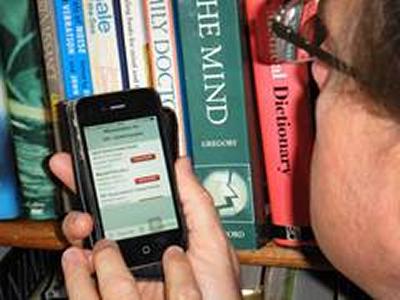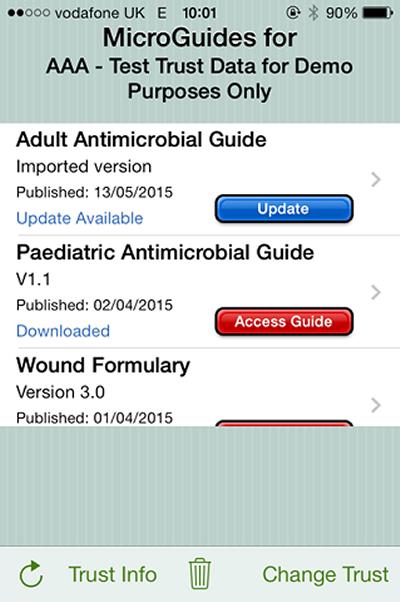
In partnership with Horizon Strategic Partners at Southampton University NHS Trust we have developed and marketed a phone app ‘Microguide’ that advises on antibiotic use: 70% of doctors we surveyed had it on their phone and accessed it about once per week.
Microguide can be downloaded for free and offers advice on many aspects of antimicrobial healthcare. For example it helps the doctor identify the specific antibiotic, and dosage, required for a particular bacterial infection. It is vital that the microbe species responsible for an infection be identified quickly – this allows the use of a specific targeted antimicrobial (e.g. an antibiotic if the microbe in question is a bacteria), instead of a broadband antimicrobial. Overuse of broadband antimicrobial agents means that resistance to them can evolve rapidly in microbe populations, so that when the broadband treatment is really crucial, it is much less effective at saving the patient.
However if such diagnostics take days, the infection has time to spread. We need rapid diagnostics, and Microguide helps identify the right specific antibiotic for a given infection and symptoms.
We also need affordable and easy-to-use diagnostics, because cash and training can be in short supply in many health crises around the world. Microguide is a free app and can be downloaded by anyone. Hospitals can opt to pay a small fee so that they can edit it, and tailor it for their own regional needs.
What sort of features does Microguide have?
Microguide has a host of useful features, for example entries for penicillin are shown in red to help alert doctors that they should double-check if the patient is allergic to penicillin.
The Serum level monitoring part of Microguide includes a calculator so the doctor can calculate how frequently to re-dose depending on how many hours after administration they find what level of drug in blood.
What next for Microguide?
The next stage will be to develop a feature to allow the doctor to answer a few questions first about the patient so that the treatment regimen is better tailored for that specific patient, giving better treatment outcomes and steering doctors away from using a broad spectrum antibiotic.
Eventually we hope to see mobile phones receiving automatic alerts directly from sensors on the patient so that, even when not at the bedside, the doctor can monitor, and respond to, changes in the patient’s condition.